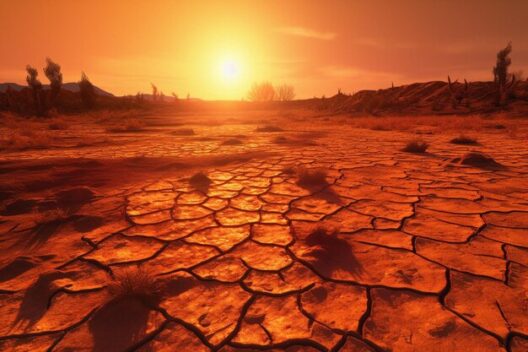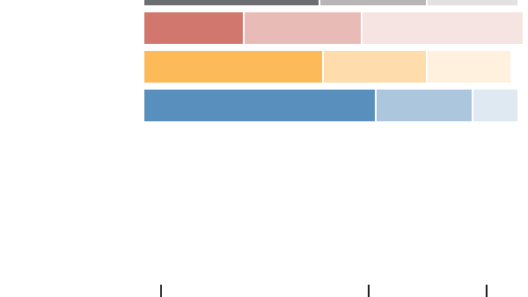Have you ever pondered the real impact of what you place on your dinner plate? It might surprise you to learn that this seemingly small aspect of daily life has a significant link to climate change. With the rise of global temperatures and increasingly erratic weather patterns, the question arises: how exactly does the consumption of cattle products influence our planet’s health? This inquiry unveils a daunting challenge that intertwines dietary choices with environmental sustainability. Let’s embark on this exploration to understand the intricate relationship between cattle farming and climate disruption.
The correlation between livestock production and climate change is a pressing issue that often remains obscured from mainstream discourse. Cattle farming, in particular, stands at the forefront of environmental concern due to its substantial contributions to greenhouse gas emissions. Indeed, estimates suggest that livestock production is responsible for around 14.5% of all anthropogenic greenhouse gases. This figure is staggering and prompts the question: how does this plate of beef ultimately reflect upon our atmosphere?
To comprehend the gravity of this connection, one must delve into the biological and ecological aspects of cattle rearing. Cows, as ruminant animals, possess a unique digestive system that contributes to the production of methane—a potent greenhouse gas—through enteric fermentation. Methane has a global warming potential many times greater than carbon dioxide over a 20-year period. The digestive process in cattle produces a staggering amount of methane annually, contributing significantly to climate change.
Moreover, let us consider the land-use implications of cattle farming. The demand for beef necessitates vast tracts of land for grazing. This has led to extensive deforestation, particularly in sensitive ecosystems such as the Amazon rainforest. The transformation of forests into pastures not only diminishes biodiversity but also undermines the planet’s ability to sequester carbon, effectively layering the challenges we face.
Another insidious effect of cattle farming is the depletion of water resources. Meat production is incredibly water-intensive, requiring significantly more water than plant-based foods. For instance, producing just one kilogram of beef can consume up to 15,000 liters of water when we account for the entire feed cycle. This raises a critical consideration as water scarcity becomes more prevalent due to climate change. Are our dietary choices reinforcing the very crises we aim to mitigate?
A crucial aspect to address is the global dietary shifts occurring over the past few decades. With wealthier populations increasing their meat consumption, particularly in countries such as China and India, the strain on resources intensifies. This shift is not without consequences, leading to an increase in greenhouse gas emissions and the exacerbation of climate-related issues. Cultivating awareness around our consumption habits becomes vital. By reframing our choices, we hold the potential to influence the trajectory of climate change.
Moreover, the environmental ramifications don’t cease with cattle farming alone. The extensive agribusiness that supports beef production contributes to soil degradation and nutrient depletion. Intensive agricultural practices seeking to maximize yield often neglect natural ecosystems, resulting in erosion and loss of fertile land. The irony lies in our pursuit of sustenance, which, when misaligned with ecological principles, leads to long-term food security challenges.
Now, one might wonder, “What alternatives exist?” The burgeoning field of plant-based diets presents a viable solution. Transitioning toward a more plant-centric approach can reduced meat-related greenhouse gas emissions significantly. Studies suggest that a shift to even a modest reduction in meat consumption can catalyze meaningful change. Furthermore, embracing alternative protein sources, such as legumes, nuts, and grains, not only mitigates climate impact but also provides health benefits accompanied by additional nutritional value.
Nevertheless, advocating for dietary change can be a daunting task embedded with cultural and societal implications. Traditional diets deeply rooted in cultural rituals are indeed challenging to modify. So how do we confront this cultural inertia? Engaging communities through education about the environmental impacts of food choices is one approach to fostering acceptance of dietary adjustments. Workshops, cooking classes, and storytelling centered around the significance of plant-based meals can facilitate dialogue and inspire transformative shifts.
Moreover, supporting local and sustainable farms can re-orient food systems toward practices that respect ecological boundaries. Grass-fed beef, pasture rotation, and agroecological methods pose pathways to reduce the adverse effects associated with conventional cattle farming. By fostering consumer demand for ethically produced options, the market can pivot toward sustainability, encouraging the industry to adopt practices that prioritize ecological balance.
In summation, your dinner plate indeed serves as a potent symbol of the environmental challenges we face. The connection between cattle farming and climate change is multifaceted, revealing interdependencies between food choices, land use, and ecological health. As stewards of our planet, the responsibility lies with us to be conscientious in our eating habits. By embracing plant-based alternatives, supporting sustainable agriculture, and fostering community dialogue, we can forge a path towards a healthier planet. The challenge is significant, but through collective action, we possess the capacity to alter the course of our environmental future.








